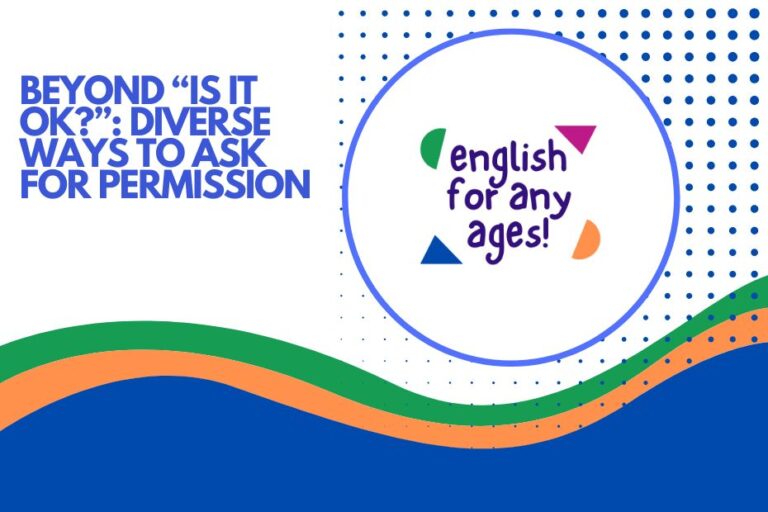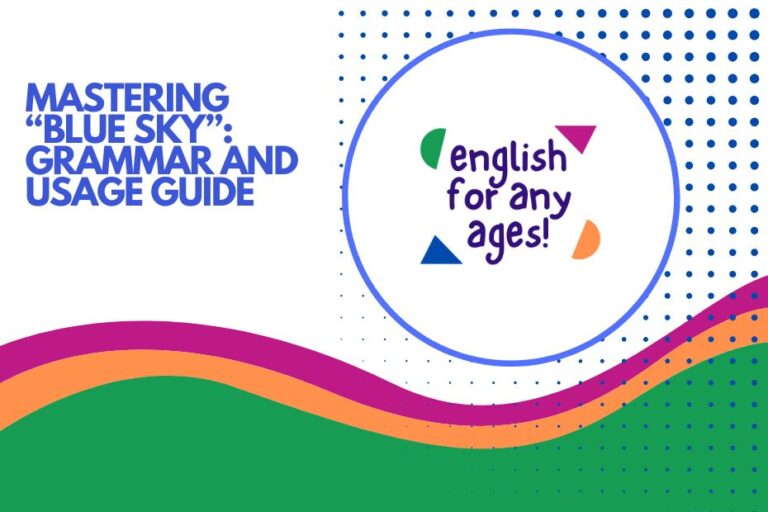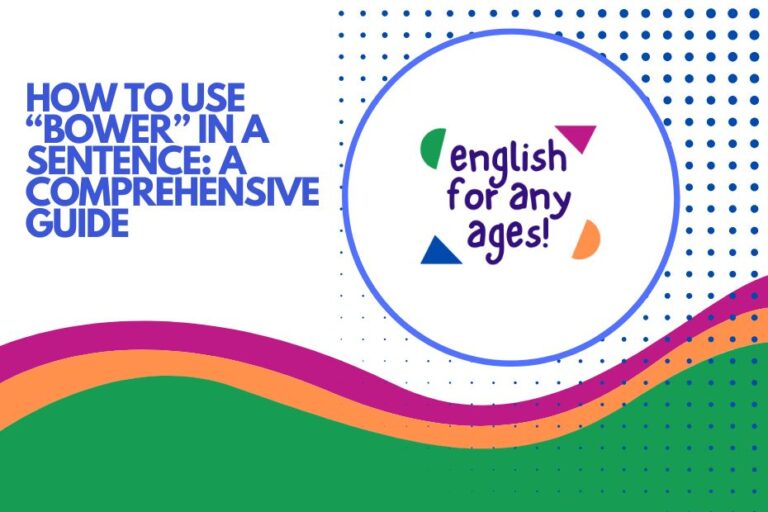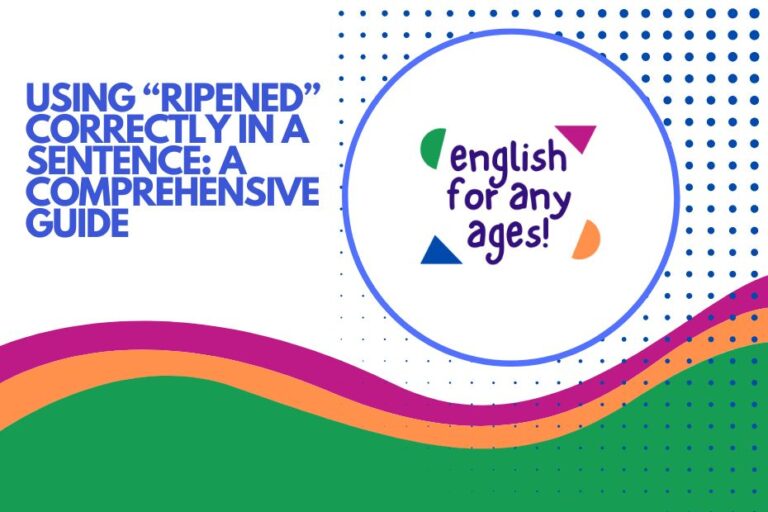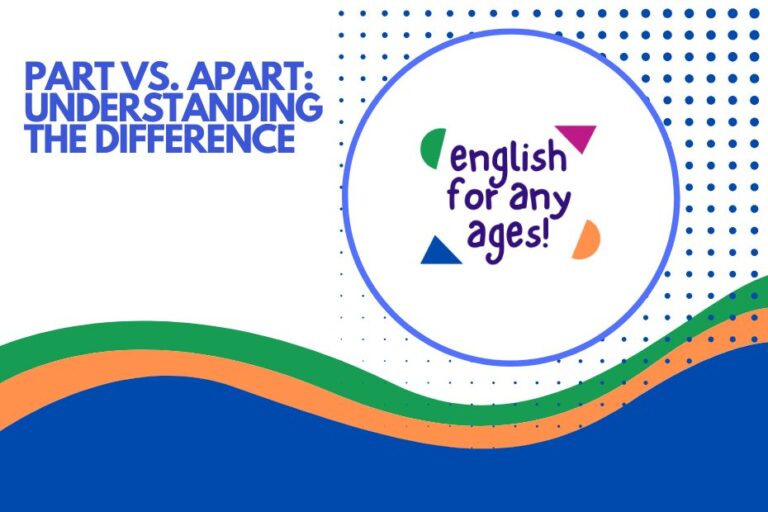Mastering “Regarding”: Sentence Examples and Usage Guide
The preposition “regarding” plays a crucial role in English, allowing us to specify the topic or subject we are discussing. A solid understanding of “regarding” enhances the clarity and precision of your communication, both in writing and speech.
This article provides an in-depth exploration of “regarding,” covering its definition, structure, usage rules, common mistakes, and advanced applications. Whether you’re an English language learner or a native speaker aiming to refine your grammar skills, this comprehensive guide will equip you with the knowledge and practice necessary to use “regarding” effectively.
This guide is designed for English language learners, students, professionals, and anyone looking to improve their grammatical accuracy and sophistication. By mastering “regarding,” you’ll be able to express your thoughts more clearly and precisely, leading to more effective communication in various contexts.
Table of Contents
- Definition of “Regarding”
- Structural Breakdown
- Examples of Usage
- Usage Rules
- Common Mistakes
- Practice Exercises
- Advanced Topics
- Frequently Asked Questions
- Conclusion
Definition of “Regarding”
The word “regarding” is a preposition that means “concerning” or “about.” It is used to introduce the subject or topic that you are talking or writing about. It indicates a specific focus or area of consideration.
“Regarding” is often used in formal contexts, such as business emails, legal documents, and academic papers. It adds a level of sophistication and precision to your language.
As a preposition, “regarding” is always followed by a noun, noun phrase, or pronoun. It connects the subject matter to the rest of the sentence, providing context and clarity.
The use of “regarding” helps to narrow down the scope of the discussion and avoid ambiguity.
For instance, saying “Regarding the new project proposal…” indicates that the following information will be specifically about that proposal. Without “regarding,” the sentence might lack a clear focus.
The choice between “regarding” and synonyms like “concerning” or “about” often depends on the desired tone and level of formality.
Structural Breakdown
The basic structure of a sentence using “regarding” is as follows:
Regarding + Noun/Noun Phrase/Pronoun + Main Clause
Here’s a breakdown of each component:
- Regarding: The preposition itself, which introduces the topic.
- Noun/Noun Phrase/Pronoun: The specific subject or topic being addressed. This could be a single word (e.g., “Regarding payment…”) or a more complex phrase (e.g., “Regarding the recent changes to the policy…”).
- Main Clause: The main part of the sentence that provides information or makes a statement about the subject introduced by “regarding.”
Let’s look at some examples to illustrate this structure:
- Regarding the meeting, we need to finalize the agenda.
- Regarding her application, we have decided to offer her the position.
- Regarding the budget, we need to make some adjustments.
In each of these examples, “regarding” is followed by a noun phrase that specifies the topic, and then the main clause provides further information about that topic. The placement of “regarding” at the beginning of the sentence is common, but it can also appear in other positions, although this is less frequent and often less formal.
The phrase introduced by “regarding” acts as an introductory element, setting the stage for the main part of the sentence. This structure allows for a clear and organized presentation of information, making it easier for the reader or listener to understand the focus of the communication.
Examples of Usage
The preposition “regarding” can be used in various contexts, including formal, informal, business, academic, and legal settings. Each context may require a slightly different tone and level of formality, but the basic structure remains the same.
Formal Contexts
In formal contexts, “regarding” is often used to introduce a topic in a polite and professional manner. This is common in official letters, presentations, and formal reports.
It adds a layer of respect and seriousness to the communication.
The following table provides examples of “regarding” used in formal contexts:
| Example Sentence | Context |
|---|---|
| Regarding your inquiry, we are pleased to provide the following information. | Official letter |
| Regarding the proposed changes, the committee will meet next week to discuss them. | Formal report |
| Regarding the agenda for today’s meeting, we will begin with a review of the minutes. | Formal presentation |
| Regarding the outstanding balance, please remit payment as soon as possible. | Formal email |
| Regarding the terms and conditions, please read the attached document carefully. | Contract document |
| Regarding the recent announcement, we would like to clarify a few points. | Company-wide memo |
| Regarding your request for information, we are processing it and will respond shortly. | Customer service response |
| Regarding the safety regulations, all employees must adhere to the guidelines. | Compliance document |
| Regarding the upcoming conference, registration is now open. | Event announcement |
| Regarding the new policy implementation, training sessions will be provided. | Internal communication |
| Regarding the audit findings, we are taking corrective actions. | Audit report |
| Regarding the contract renewal, please submit the required documents by the deadline. | Legal correspondence |
| Regarding the proposed merger, due diligence is currently underway. | Financial report |
| Regarding the environmental impact assessment, the results are being analyzed. | Environmental report |
| Regarding the resource allocation, we are prioritizing essential projects. | Project management update |
| Regarding the security breach, we have implemented additional measures. | Security announcement |
| Regarding the performance review, your feedback is greatly appreciated. | HR communication |
| Regarding the inventory management, we are streamlining the process. | Operations report |
| Regarding the customer satisfaction survey, we are analyzing the results. | Marketing report |
| Regarding the risk assessment, we have identified potential threats. | Risk management report |
| Regarding the budget forecast, we are projecting a positive outlook. | Financial forecast |
| Regarding the market trends, we are adapting our strategies accordingly. | Market analysis |
| Regarding the technological advancements, we are investing in innovation. | Technology report |
| Regarding the organizational restructuring, the changes will be effective next month. | Internal memo |
| Regarding the sustainability initiatives, we are committed to reducing our carbon footprint. | Sustainability report |
| Regarding the community outreach programs, we are planning several events. | Corporate social responsibility report |
Informal Contexts
While “regarding” is more common in formal settings, it can also be used in informal contexts, although less frequently. In informal settings, synonyms like “about” or “concerning” are often preferred.
However, “regarding” can still be used to add a touch of formality or to be more precise.
The following table provides examples of “regarding” used in informal contexts:
| Example Sentence | Context |
|---|---|
| Regarding the party tonight, are you still planning to come? | Casual conversation |
| Regarding the movie we talked about, I heard it’s really good. | Informal chat |
| Regarding your question about the trip, I’ll get back to you tomorrow. | Friendly email |
| Regarding the book I lent you, have you finished reading it? | Personal conversation |
| Regarding the dinner plans, let’s finalize them by this afternoon. | Group text message |
| Regarding the game, are you bringing your console? | Planning a get-together |
| Regarding the concert, did you manage to get tickets? | Discussing entertainment |
| Regarding the weather, it looks like it might rain later. | Making small talk |
| Regarding your new job, how’s it going so far? | Catching up with a friend |
| Regarding the project we’re working on, let’s schedule a meeting. | Collaborating with colleagues |
| Regarding the holiday plans, where are you thinking of going? | Planning a vacation |
| Regarding the recipe you shared, I’m going to try it this weekend. | Discussing cooking |
| Regarding the news, did you hear about the latest developments? | Sharing information |
| Regarding the podcast you recommended, I’m really enjoying it. | Discussing media recommendations |
| Regarding the fitness challenge, are you still participating? | Encouraging healthy habits |
| Regarding the language course, how’s your progress? | Checking on personal development |
| Regarding the volunteer work, are you available next Saturday? | Organizing community service |
| Regarding the book club meeting, what are we reading this month? | Discussing literature |
| Regarding the photography workshop, did you sign up for it? | Sharing hobby interests |
| Regarding the local events, is there anything interesting happening this weekend? | Exploring local activities |
| Regarding the home renovation, how’s the project coming along? | Discussing home improvement |
| Regarding the gardening tips, do you have any advice for growing tomatoes? | Sharing gardening knowledge |
| Regarding the car maintenance, when are you planning to get it serviced? | Discussing vehicle care |
| Regarding the travel insurance, did you purchase it before the trip? | Planning a trip |
| Regarding the online course, are you finding it useful? | Discussing online learning |
Business Contexts
In business contexts, “regarding” is frequently used in emails, memos, reports, and presentations. It helps to introduce specific topics and maintain a professional tone.
It is especially useful when addressing multiple points or issues within a single communication.
The following table provides examples of “regarding” used in business contexts:
| Example Sentence | Context |
|---|---|
| Regarding the sales figures for Q3, we saw a significant increase compared to last year. | Sales report |
| Regarding the upcoming marketing campaign, we need to finalize the budget and timeline. | Marketing meeting |
| Regarding your request for a salary increase, we will review your performance and provide a response next week. | HR communication |
| Regarding the proposed merger, we are conducting due diligence to assess the potential benefits. | Business proposal |
| Regarding the customer feedback, we are taking steps to improve our service. | Customer service report |
| Regarding the project deadline, we are on track to meet the scheduled completion date. | Project management update |
| Regarding the new software implementation, training sessions will be provided for all staff. | IT announcement |
| Regarding the budget allocation for next year, we will prioritize strategic initiatives. | Financial planning |
| Regarding the employee benefits package, we are exploring options to enhance the offerings. | HR memo |
| Regarding the competitive analysis, we have identified key areas for improvement. | Market research |
| Regarding the supply chain disruptions, we are implementing contingency plans. | Operations update |
| Regarding the regulatory compliance, we are adhering to all applicable laws and standards. | Legal department communication |
| Regarding the sustainability initiatives, we are committed to reducing our environmental impact. | Corporate social responsibility report |
| Regarding the risk management strategies, we have implemented measures to mitigate potential threats. | Risk assessment report |
| Regarding the innovation efforts, we are investing in research and development. | Innovation strategy |
| Regarding the employee engagement survey, we are analyzing the results to improve morale. | HR report |
| Regarding the customer retention program, we are implementing loyalty rewards. | Customer relationship management |
| Regarding the data security protocols, we are ensuring the protection of sensitive information. | IT security update |
| Regarding the operational efficiency, we are streamlining processes to reduce costs. | Operations management |
| Regarding the market expansion plans, we are exploring opportunities in new regions. | Strategic planning |
| Regarding the product development roadmap, we are prioritizing features based on customer feedback. | Product management |
| Regarding the talent acquisition strategy, we are focusing on attracting top candidates. | Recruitment planning |
| Regarding the performance management system, we are implementing a new evaluation process. | HR policy |
| Regarding the crisis communication plan, we are prepared to respond to potential emergencies. | Public relations |
| Regarding the shareholder relations, we are committed to transparency and accountability. | Investor relations |
Academic Contexts
In academic writing and discussions, “regarding” is used to introduce specific topics, research questions, or areas of study. It helps to provide a clear focus and maintain a formal tone, which is essential in academic settings.
The following table provides examples of “regarding” used in academic contexts:
| Example Sentence | Context |
|---|---|
| Regarding the research question, this study aims to investigate the impact of social media on adolescent behavior. | Research paper |
| Regarding the literature review, there is a significant gap in the existing research on this topic. | Thesis statement |
| Regarding the methodology, we employed a mixed-methods approach to gather and analyze data. | Research proposal |
| Regarding the findings, the results suggest a strong correlation between exercise and mental health. | Academic presentation |
| Regarding the limitations of the study, further research is needed to address the confounding variables. | Dissertation |
| Regarding the theoretical framework, we adopted a cognitive-behavioral perspective to explain the phenomena. | Academic article |
| Regarding the ethical considerations, we obtained informed consent from all participants. | Research ethics |
| Regarding the data analysis, we used statistical software to perform regression analysis. | Methodology section |
| Regarding the sample size, we ensured it was large enough to achieve statistical power. | Research design |
| Regarding the research implications, the findings have practical applications in clinical settings. | Discussion section |
| Regarding the future directions, we recommend further investigation into the long-term effects. | Conclusion section |
| Regarding the experimental design, we used a control group to compare the outcomes. | Experiment report |
| Regarding the data collection methods, we used surveys and interviews to gather information. | Data gathering process |
| Regarding the research objectives, we aimed to explore the underlying mechanisms. | Research objectives |
| Regarding the statistical significance, the p-value was less than 0.05, indicating a significant effect. | Statistical analysis |
| Regarding the validity of the findings, we ensured the measures were accurate and reliable. | Research validity |
| Regarding the literature synthesis, we integrated findings from various sources to provide a comprehensive overview. | Literature review writing |
| Regarding the theoretical implications, the study contributes to the development of new models. | Theoretical implications |
| Regarding the practical applications, the findings can inform policy and practice. | Practical applications |
| Regarding the research contribution, the study provides novel insights into the topic. | Research contribution |
| Regarding the research scope, we focused on a specific population to ensure specificity. | Research scope |
| Regarding the research limitations, we acknowledge the potential for bias in the self-report measures. | Research limitations |
| Regarding the research strengths, we used rigorous methods to ensure the validity of the findings. | Research strengths |
| Regarding the research design, we used a longitudinal study to track changes over time. | Research design |
| Regarding the research analysis, we used qualitative methods to explore the themes in the data. | Research analysis |
Legal Contexts
In legal documents and discussions, “regarding” is used to refer to specific clauses, cases, or legal matters. It adds precision and formality, which is essential in legal communication.
The use of “regarding” helps to avoid ambiguity and ensure clarity in legal arguments and contracts.
The following table provides examples of “regarding” used in legal contexts:
| Example Sentence | Context |
|---|---|
| Regarding the breach of contract, the plaintiff is seeking damages for financial losses. | Legal document |
| Regarding the terms of the agreement, both parties must adhere to the stipulations outlined in the document. | Contract law |
| Regarding the case of Smith vs. Jones, the court has scheduled a hearing for next month. | Court proceedings |
| Regarding the evidence presented, the prosecution argues that it proves the defendant’s guilt beyond a reasonable doubt. | Trial argument |
| Regarding the legal precedent, the court will consider previous rulings on similar cases. | Legal analysis |
| Regarding the statutory interpretation, the law must be applied according to its plain meaning. | Legal interpretation |
| Regarding the due process, the defendant has the right to a fair trial and legal representation. | Constitutional law |
| Regarding the intellectual property rights, the company owns the patent for the invention. | Intellectual property law |
| Regarding the environmental regulations, the company must comply with all applicable laws. | Environmental law |
| Regarding the labor laws, the employer must provide a safe and healthy working environment. | Employment law |
| Regarding the tax liabilities, the individual must accurately report their income and deductions. | Tax law |
| Regarding the property rights, the individual has the right to exclusive possession and use of the land. | Property law |
| Regarding the criminal charges, the defendant is presumed innocent until proven guilty. | Criminal law |
| Regarding the civil lawsuit, the plaintiff is seeking compensation for injuries sustained. | Civil law |
| Regarding the arbitration clause, the parties agree to resolve disputes through mediation. | Contract clause |
| Regarding the jurisdiction, the court has the authority to hear the case based on the location of the events. | Jurisdictional issues |
| Regarding the statute of limitations, the claim must be filed within a specified period of time. | Legal deadlines |
| Regarding the legal remedies, the court may award damages, injunctions, or specific performance. | Legal remedies |
| Regarding the appellate review, the higher court will examine the lower court’s decision for errors. | Appeals process |
| Regarding the legal representation, the attorney will provide legal advice and represent the client’s interests. | Attorney-client relationship |
| Regarding the settlement negotiations, the parties are attempting to reach a mutually agreeable resolution. | Settlement process |
| Regarding the confidentiality agreement, the parties agree to keep the information confidential. | Confidentiality agreement |
| Regarding the force majeure clause, the contract may be terminated due to unforeseen circumstances. | Contractual clauses |
| Regarding the indemnification clause, one party agrees to protect the other from liability. | Indemnification |
| Regarding the choice of law, the contract will be governed by the laws of a specific jurisdiction. | Choice of law |
Usage Rules
Using “regarding” correctly involves following certain rules to ensure clarity and grammatical accuracy. These rules cover placement, subject-verb agreement (where applicable), and the overall flow of the sentence.
- Placement: “Regarding” typically appears at the beginning of a sentence or clause to introduce the topic. While it can be placed elsewhere, this is less common and may sound awkward in formal writing.
- Noun/Noun Phrase/Pronoun: “Regarding” must always be followed by a noun, noun phrase, or pronoun. This provides the specific subject matter being addressed.
- Clarity: Ensure that the topic introduced by “regarding” is clearly related to the main clause of the sentence. Avoid using “regarding” in situations where the connection is unclear or ambiguous.
- Formality: Be mindful of the level of formality required by the context. While “regarding” is generally suitable for formal settings, it may sound too stiff in casual conversations.
Here are some examples illustrating these rules:
- Correct: Regarding the new policy, we will hold a training session next week.
- Correct: We will hold a training session next week regarding the new policy. (Less common, but grammatically correct)
- Incorrect: Regarding, we will hold a training session next week. (Missing the noun/noun phrase)
- Incorrect: Regarding the new policy, it is important. (Unclear connection to the main clause)
It is also important to avoid redundancy when using “regarding.” For example, avoid phrases like “Regarding about” or “Regarding concerning,” as “regarding” already implies “about” or “concerning.”
Common Mistakes
Even with a good understanding of the rules, it’s easy to make mistakes when using “regarding.” Here are some common errors and how to avoid them:
| Incorrect | Correct | Explanation |
|---|---|---|
| Regarding about the issue, we need to find a solution. | Regarding the issue, we need to find a solution. | “Regarding” already means “about,” so “about” is redundant. |
| Regarding, we need to find a solution. | Regarding the problem, we need to find a solution. | “Regarding” must be followed by a noun, noun phrase, or pronoun. |
| Regarding of the weather, the event will continue. | Regardless of the weather, the event will continue. | “Regarding” and “regardless” have different meanings and should not be confused. |
| Regarding to the email, I have already replied. | Regarding the email, I have already replied. | The preposition “to” is unnecessary after “regarding.” |
| The issue regarding, we need to find a solution. | Regarding the issue, we need to find a solution. | “Regarding” should typically be placed at the beginning of the sentence or clause. |
| About regarding the project, let’s discuss the details. | Regarding the project, let’s discuss the details. | Avoid using “about” before “regarding” as it is redundant. |
| Concerning regarding the meeting, it has been postponed. | Regarding the meeting, it has been postponed. | Avoid using “concerning” before “regarding” as it is redundant. |
| Regarding on the topic, there are several perspectives. | Regarding the topic, there are several perspectives. | The preposition “on” is unnecessary after “regarding.” |
| Regarding for the question, I don’t have an answer. | Regarding the question, I don’t have an answer. | The preposition “for” is unnecessary after “regarding.” |
| In regarding the matter, we must proceed carefully. | Regarding the matter, we must proceed carefully. | The preposition “in” is unnecessary before “regarding.” |
By being aware of these common mistakes, you can avoid errors and use “regarding” correctly in your writing and speech.
Practice Exercises
To solidify your understanding of “regarding,” complete the following practice exercises. Fill in the blanks with the correct use of “regarding” in each sentence.
| Question | Answer |
|---|---|
| __________ the new marketing strategy, what are your thoughts? | Regarding |
| __________ the recent changes, we need to update our procedures. | Regarding |
| __________ your inquiry, we are happy to assist you. | Regarding |
| __________ the meeting schedule, it has been postponed to next week. | Regarding |
| __________ the budget constraints, we need to prioritize our expenses. | Regarding |
| __________ the customer feedback, we are making improvements to our service. | Regarding |
| __________ the project timeline, we are on track to meet the deadline. | Regarding |
| __________ the employee performance, we are conducting annual reviews. | Regarding |
| __________ the safety regulations, all employees must adhere to the guidelines. | Regarding |
| __________ the upcoming conference, registration is now open. | Regarding |
Exercise 2: Identify the errors in the following sentences and correct them.
| Question | Answer |
|---|---|
| Regarding about the issue, what should we do? | Regarding the issue, what should we do? |
| Regarding, we need to discuss the matter. | Regarding the matter, we need to discuss the matter. |
| Regarding to the contract, please review the terms. | Regarding the contract, please review the terms. |
| The problem regarding, we need to find a solution. | Regarding the problem, we need to find a solution. |
| Regarding of the weather, the event is still on. | Regardless of the weather, the event is still on. |
| About regarding the proposal, let’s analyze the benefits. | Regarding the proposal, let’s analyze the benefits. |
| Concerning regarding the decision, it has been finalized. | Regarding the decision, it has been finalized. |
| Regarding on the topic, there are varying opinions. | Regarding the topic, there are varying opinions. |
| Regarding for the request, we are processing it. | Regarding the request, we are processing it. |
| In regarding the situation, we must act quickly. | Regarding the situation, we must act quickly. |
Exercise 3: Rewrite the following sentences using “regarding” to make them more formal.
| Question | Answer |
|---|---|
| About the new project, I have some questions. | Regarding the new project, I have some questions. |
| Concerning the meeting, it has been rescheduled. | Regarding the meeting, it has been rescheduled. |
| On the subject of the budget, we need to make adjustments. | Regarding the budget, we need to make adjustments. |
| As for your application, we have decided to offer you the job. | Regarding your application, we have decided to offer you the job. |
| Talking about the new policy, we need to train all employees. | Regarding the new policy, we need to train all employees. |
Advanced Topics
For advanced learners, understanding the nuances of “regarding” and its subtle differences from similar prepositions can further enhance their language skills. This includes exploring its usage in complex sentence structures and idiomatic expressions.
One advanced topic is the use of “regarding” in complex sentences with multiple clauses. In such cases, it’s crucial to ensure that the topic introduced by “regarding” remains clearly linked to the relevant clause.
For example:
Regarding the data collected in the first phase of the study, which focused on urban areas, we observed a significant correlation between air pollution and respiratory illnesses.
Another advanced topic is the subtle difference between “regarding” and other similar prepositions like “concerning,” “pertaining to,” and “with respect to.” While these prepositions are often interchangeable, they may carry slightly different connotations or be more appropriate in certain contexts. “Pertaining to” and “with respect to” are generally more formal than “regarding” and “concerning.”
For example:
- Regarding the safety measures, we have implemented new protocols.
- Concerning the safety measures, we have implemented new protocols.
- Pertaining to the safety measures, we have implemented new protocols.
- With respect to the safety measures, we have implemented new protocols.
The choice between these prepositions often depends on the desired level of formality and the specific nuance you want to convey. Advanced learners should strive to develop a keen sense of these subtle differences to use each preposition with precision.
Frequently Asked Questions
- Is “regarding” formal or informal?
“Regarding” is generally considered a formal preposition. It is commonly used in business, academic, and legal contexts to introduce a specific topic in a professional and polite manner. While it can be used in informal settings, synonyms like “about” or “concerning” are often preferred.
- Can I use “regarding” at the end of a sentence?
While it is grammatically possible to place “regarding” at the end of a sentence, it is less common and may sound awkward in formal writing. It is generally better to place “regarding” at the beginning of the sentence or clause to clearly introduce the topic.
- What is the difference between “regarding” and “regardless”?
“Regarding” means “concerning” or “about,” while “regardless” means “without regard” or “despite.” These words have different meanings and should not be confused. For example, “Regarding the weather, the event will be held indoors” means the event is about the weather, while “Regardless

